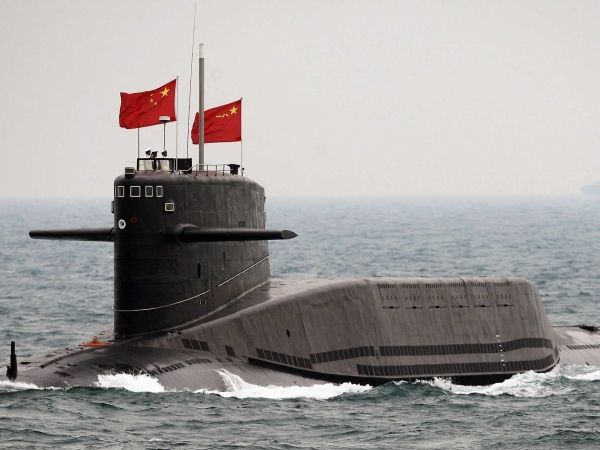China will increase its defense budget by 10 percent this year. The country’s growing military spending is a trend that has many of its neighbors worried. Beijing sees the increase as natural.
China has planned a defense budget for the year 2013 that will total around 90 billion euros. That is an increase of 10.7 percent compared to last year. In terms of military spending among countries worldwide, it means China is the second military high-roller, right behind the US.
The Chinese government justifies the spending by calling it the “politics of peaceful defense.” The country wants to put itself in a position that it cannot be attacked by any other country, according to Fu Ying, China’s deputy foreign minister and spokeswoman of the National People’s Congress, which convened on Tuesday, March 5, in Beijing.
Beijing seems to be fed up having to defend its defense budget: “It seems as though China has to explain to the world each year why it wants to strengthen its defenses and increase the military budget,” said Fu.
Armament or modernization?
From 2005 – 2009, China’s defense spending grew at a rate of 15 – 20 percent annually, before reaching the current stable growth rate of 10 – 11 percent. Globalization expert and professor at Bonn University Xuewu Gu said the trend was nothing exclusive to China but that it was understandable that other countries were paying such close attention to the military modernization. “It is, nonetheless, too one-sided to overinterpret the growth rate.”
Nadine Godehardt, security expert at the German Institute for International and Security Affairs, said the words used in China are “modernization” and “transformation” and not armament. She said in many respects, “it is necessary, for example, for the reduction and specialization of the armed forces and the modernization of military equipment.”
Not as much as it seems
According to reports from the official Chinese state news agency Xinhua, the People’s Liberation Army will receive more weapons and training to become specialized in fighting terrorism and to help provide relief after certain natural disasters. According to Bonn University’s Center for Global Studies, China’s military spending only accounts for around 1.3 – 1.8 percent of the country’s GDP, while in other industrialized countries, such as Germany, France and the United Kingdom, spending is between 2.5 – 3.5 of the GDP. In the past 15 years, the US has even spent a total of 4.5 – 5 percent of its GDP on the military.
With territorial disputes between China and other Asian countries flaring up of late, the security situation in the East and South China Seas has started to draw international attention. In Japan, Vietnam and the Philippines, anti-China sentiment has grown as a result of the disputes over islands to which China lays claim.
“China is getting nervous,” said Xuewu Gu. With economic growth alone, China would not be able to secure its security policies in the contested areas.
“The trend is becoming increasingly strong because the modernization of the military is happening so quickly. China is placing special emphasis on its marines forces and wants to build more aircraft carriers.” We should not expect to see China spending any less on its military in the coming years, he added.
“Just a reference”
But it is not clear exactly what China will spend its military funds on. Godehardt reckoned one third would be spent on personnel, one third on sustaining military activities and that one third would be spent on new military equipment.
“The development of weapons and costs for armed police – China’s paramilitary security forces – are not included in the sum. So it is difficult to say what these figures actually mean.”
China’s armed police play a special role in China’s security establishment because, among other things, they control China’s border areas and fight hard crime and terrorism. According to the Stockholm International Peace Research Institute (SIPRI), China actually spends up to 50 percent more on its military than it announces in its budget.









